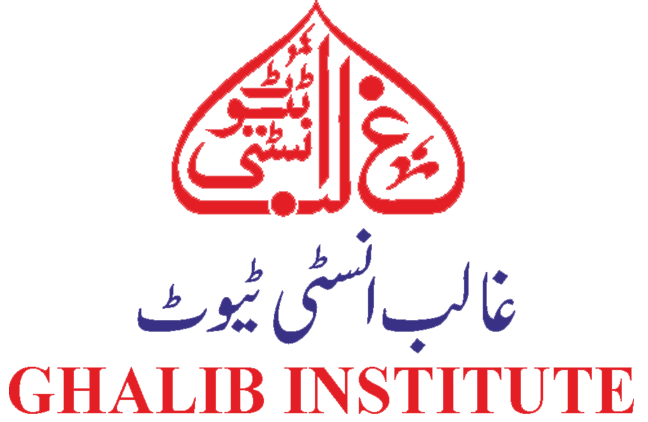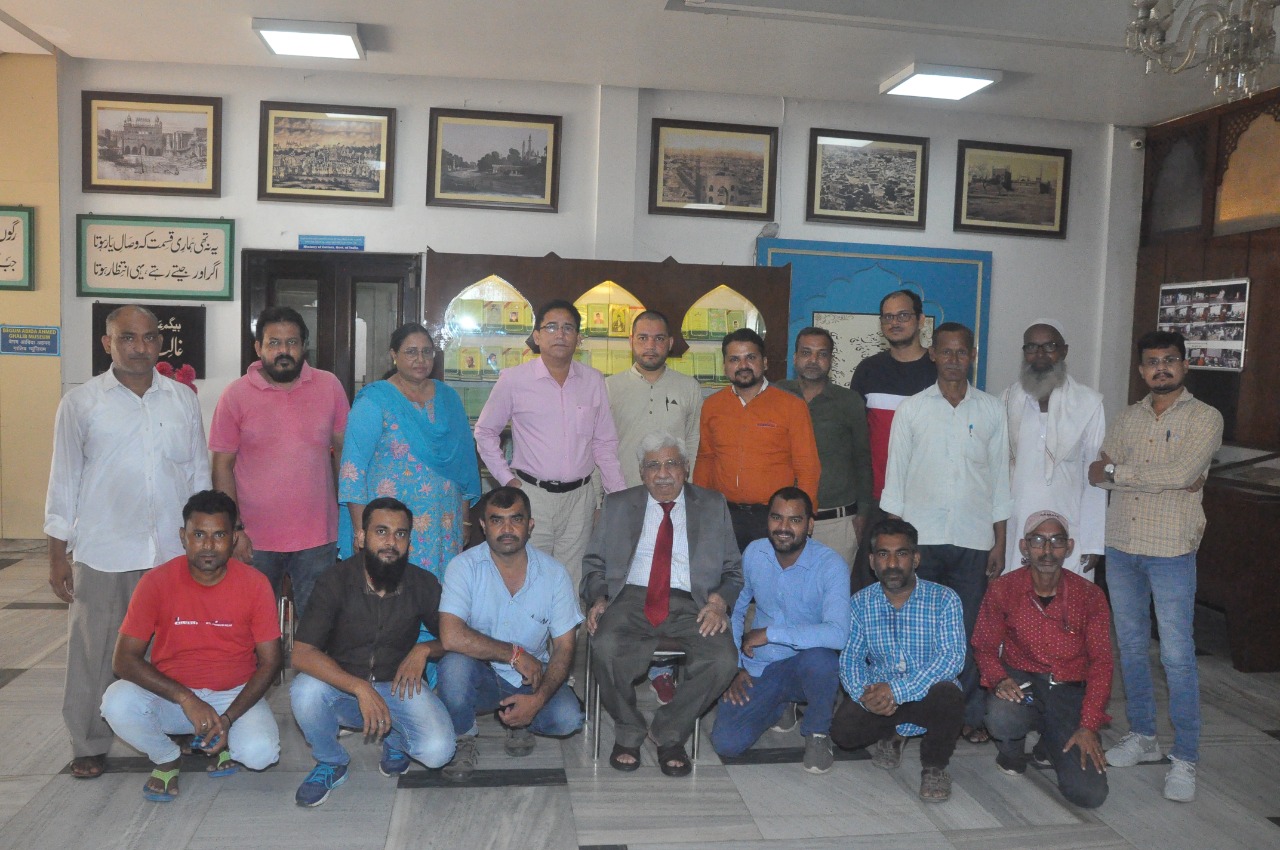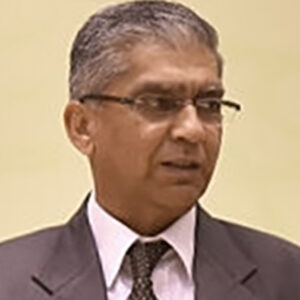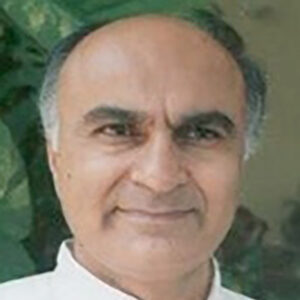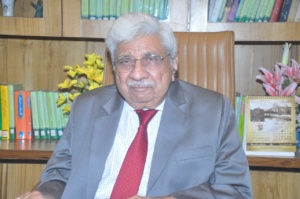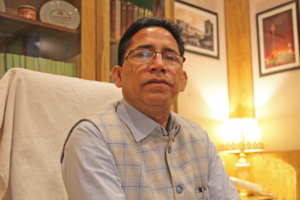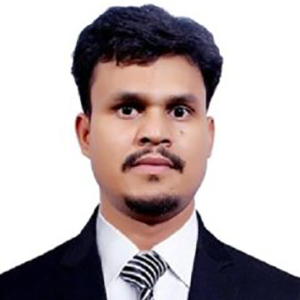Justice Badar Durrez Ahmed
Chairman
Justice Badar Durrez Ahmed is an Indian judge. He is former Chief Justice of Jammu and Kashmir High Court and Judge of Delhi High Court. He has served as Acting Chief Justice of Delhi High Court twice. Ahmed is presently the Chairman of the Ghalib Institute and the Member of the Board of Trust of the Ghalib Institute.
Justice Badar Durrez Ahmed was born in 1956 in Shillong, Meghalaya, the son of Dr Fakhruddin Ali Ahmed who was President of India (24 August 1974 – 11 February 1977) by his wife, Abida Begum, a lady from Haldol. His family is related to the royal family of Loharu and to the famous Urdu poet Mirza Ghalib. Ahmed is married to Saba Begum (born on 2 February 1959), the younger daughter of Nawab Sayyid Zulfikar Ali Khan Bahadur, Nawab of Rampur, by his first wife Begum Noor Bano, a politician belonging to the Congress Party. The couple has one daughter and one son.
He studied in St Edmund’s College, Shillong, (1962-1966) and St Columba’s High School, New Delhi (1966-1971). He graduated from St. Stephen’s College, Delhi in 1975 with a BA in (Hons) Economics. He completed the Tripos in Economics from Trinity College, Cambridge in 1977 and was a Lecturer in Economics at St Stephen’s College from 1977 to 1979. He enrolled as an advocate in 1980 and served in the chambers of Siddhartha Shankar Ray from 1980 to 1983. He practised independently between 1983 and 1986, and became a partner in the law firm “Lawyers Associated” in 1986, remaining in that position until 2000. In 2002, Badar Durrez was appointed a judge of the Delhi High Court. He served in that position for fifteen years, before being appointed Chief Justice of the High Court of Jammu and Kashmir. He served as Chief Justice from 1 April 2017 to 16 March 2018 and retired after the latter date.
During his eleven-month tenure as Chief Justice of the state of Jammu and Kashmir, he delivered a landmark judgment wherein he acquitted the accused Subhash Chander Sharma, who was sentenced to death under section 302 RPC and 498A RPC by the Sessions Judge, Jammu. Subhash Chander Sharmawas pleading his own case in the High Court. The judgment was dictated in open court on the same day.
Mr Aimaduddin Ahmed Khan
Vice-Chairman
Aimaduddin Ahmad Khan, or ‘Durru Mian’ (Born 1944): Indian National Congress politician, member Legislative Assembly of Rajasthan state, settled in Jaipur. Noor Bano (Born 1939): Married to Syed Zulfiqar Ali Khan of Rampur (Titular Nawab of Rampur), and a member of 11th Lok Sabha and 13th Lok Sabha. Mr Aimaduddin Ahmad Khan is the Member of the Board of Trust of the Ghalib Institute Member of the other committees of the Institute.
PROF. SADI-UR-RAHMAN KIDWAI
SECRATERY &
MEMBER Fakhruddin Ali Ahmed Research Library
Ghalib Institute,
Aiwan-e-Ghalib Marg Mata Sundri Lane New Delhi – 110 002
Phone No. – 011-23232583
DR. IDRIS AHMAD
DIRECTOR
Ghalib Institute, Aiwan-e-Ghalib Marg, Mata Sundri Lane, New Delhi – 110 002
Phone No. – 011-23232583
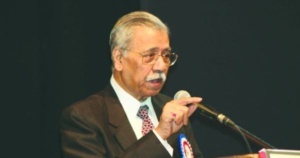
Justice Aziz Mushabber Ahmadi (A.M.Ahmadi the 26th Chief Justice of India
Aziz Mushabber Ahmadi (A. M. Ahmadi) was the 26th Chief Justice of India. After serving as a judge in the Gujarat High Court, Ahmadi was appointed judge to the Supreme Court in 1988. He was then elevated to the post of Chief Justice and served from 1994 to 1997. He served as Chancellor at the Aligarh Muslim University for two terms.
Having received a Bachelor of Laws (LL.B.), Ahmadi joined the Bar in 1954. He eventually was appointed judge to the City Civil& Sessions Court of Ahmedabad in 1964. During this time, Ahmadi was appointed as Secretary of the Legal Affairs of the State of Gujarat in 1974, which soon led to an appointment as Judge of the Gujarat High Court in 1976. As Judge of the Gujarat High Court, Ahmadi worked as Chairman of various advisory boards for Conservation of Foreign Exchange and Prevention of Smuggling Activities, Prevention of Black Marketing, Maintenance of Supplies of Essential Commodities. Also, he worked as a Member of the Ravi & Beas Waters Disputes Tribunal under the Rajiv-Longowal Settlement (Punjab Settlement).
Ultimately this led to an appointment as a Justice in the Supreme Court of India in December 1988. After six years, Ahmadi was appointed as Chief Justice of India in October 1994. Ahmadi became the third Muslim ever to serve as Chief Justice of India. After serving for two and a half years, he eventually stepped down to retire in March 1997. Justice Ahmadi as Chief Justice of India on 13 September 1996 in a judgement authored by Justice Majmundar, in the UCC case, concurred with the view that the offence fell within the scope of section304A, IPC and not within the scope of section 304 (II), IPC (culpable homicide not amounting to murder). Later the accused were tried user section 304A and were convicted and sentenced to 2 years punishment, further the NGOs raised a hue and cry and persuaded the government to file a curative petition in the Supreme Court which was decided by a 5 judge bench, which upheld the view taken by the Justice Ahmadi bench and dismissed the petition. Among many recognitions include:
Member of the American Inns of Court (May 1995)
Honorary Master Bencher of the Honourable Society of Middle Temple, London (November 1996)
Degree of Doctor of Laws (Honoris Causa) conferred on by University of Leicester, England. (July 1998)
Nominated on International Committees: Human Rights violation in East Timor (United Nations)
To assist the judiciary in Liberia (International Court of Justice)
To review the state of relations between the judiciary, the legal profession and the executive and violation of human rights in Zimbabwe (International Bar Association).
Chancellor at Aligarh: After stepping down from the Supreme Court, Ahmadi became Chancellor at the renowned Aligarh Muslim University. In 2007, Ahmadi has re-elected Chancellor of Aligarh for three years since entering academics, he has been invited to speak at various universities and forums worldwide. Particularly in India, he has used his status to speak out on political issues such as minority rights. Currently, he is the Member of the Board of Trust of the Ghalib Institute.
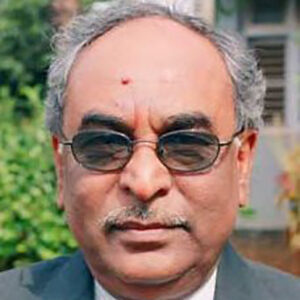
Prof. A. M. Pathan
Prof. A.M. Pathan is a distinguished academician and professor of geology with a career spanning four decades. As a student, he was the first ranker throughout and had the rare honour of being awarded the Pavate Wrangler award twice by the Karnataka University and was nominated by Indian National Science Academy (INSA) as a Member of the Indian National Committee for International Union of Geological Sciences.
Beginning his career as a lecturer of geology at Bangalore University, he progressed to become the Professor and Head of the Department of Geology. He has served in many distinguished capacities in that University as In-charge Vice-chancellor, Registrar, Registrar (Evaluation). He was appointed as Officer on Special Duty for the establishment of KSOU.
In 1996, Prof. Pathan was appointed as Vice-chancellor of the Karnatak University, Dharwar, a position that he held with distinction for two consecutive terms. In 2004, he was appointed as Vice-chancellor of the Maulana Azad National Urdu University, a Central University at Hyderabad where he was instrumental in building the academic and physical infrastructure of the University.
Prof. Pathan has served in numerous committees at the state and national level apart from being on various Executive and academic councils of many Universities, member of various bodies of the Ministry of Human Resource Development and the University Grants Commission, on search committees for the appointment of Vice-Chancellor and selection committees for appointment to various academic positions. He was also the President of the association of Indian universities in 2008. He has been conferred with many honours and distinctions recognizing his able services and contributions to the field of higher education. Prof. M. Pathan is currently a Member of the Board of Trust of the Ghalib Institute.
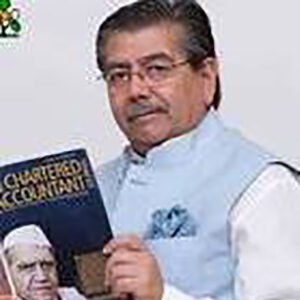
Dr. Pervez Ali Ahmed
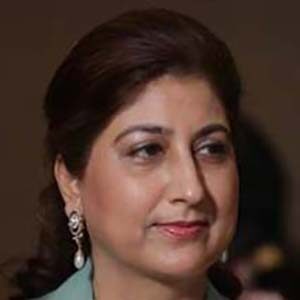
Mrs. Saba Durrez Ahmed,
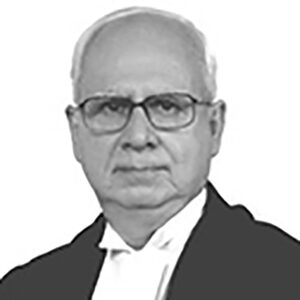
Justice Mr Aftab Alam
Ex. Judge, Supreme Court of India.
Justice Aftab Alam is an Indian Judge and former Justice of the Supreme Court of India. Alam was born in 1948 in Sheikhpura district, Bihar, studied in Patna Collegiate School.
After passing Law he was enrolled as an Advocate and practised on Criminal, Labor and Constitutional matter in the Patna High Court. Alam was designated a Senior Advocate at the age of 36. He became Additional Standing Counsel of the Government of India in the High Court on 7 September 1981 and served up to 6th September 1985. On 27 July 1990, Alam was elevated as a Permanent Judge of the Patna High Court. He was transferred to Jammu and Kashmir High Court as acting Chief Justice 6th June 2007.
On 12 November 2007, he became the Justice of the Supreme Court of India. After the retirement on 18 April 2013, Justice Alam was appointed in the post of Chairperson of the Telecom Disputes Settlement and Appellate Tribunal. Besides his legal career, he is an eminent scholar of classical Urdu having knowledge of Persian Poetry and Sufism. Currently, he is the Member of the Board of Trust of the Ghalib Institute and other committees Member also of the Institute.
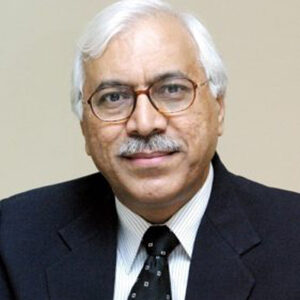
Dr Shahabuddin Yaqoob Quraishi, known as Dr.S.Y. Quraishi is an Indian civil servant who served as 17th Chief Election Commissioner (CEC) of India. He was appointed as the CEC as the successor to Navin Chawla on 30 July 2010. He has also served as a Secretary in the Ministry of Youth Affairs and Sports.
He is an IAS officer of the 1971 batch from the Haryana cadre. He has a PhD in Communications and Social marketing. Quraishi became the first Muslim to be the CEC of India. He demitted office on 10 June 2012. He has authored a book titled ‘An Undocumented Wonder – the Making of the Great Indian Election’, a book that describes the enormity and complexity of the Indian election and a book entitled Old Delhi- Living Traditions a coffee table book on the heritage city and its social and cultural life. His latest book The Population Myth reveals how the right-wing spin to population data has given rise to myths about the ‘Muslim rate of growth’, often used to stoke majoritarian fears of a demographic skew. The book busts myths about Islam and family planning. He figured in The Indian Express list of 100 Most Powerful Indians of 2011 and again in 2012. He now pursues his interests in academics by teaching &mentoring at Cluster Innovation Centre, University of Delhi in the capacity of Honorary Professor at the centre. He is also a current member of the International Elections Advisory Council. While responding to Karan Thapar on the Devil’s Advocate programme on the television channel CNN-IBN, he opposed the ideas of Right to Recall and Right to Reject advocated by Anna Hazare as not possible in India. However, after some time in a TV interview, he said that the Right to Reject can be considered. Dr S. Y. Quraishi was awarded the Honorary Fellowship of the National Indian Students Union UK in May 2016. He joined Shabana Azmi and Javed Akhtar who were the first recipients of the Fellowship. Dr Quraishi is the Member of the Board of Trust of Ghalib Institute and Chairman of the ACL Committee of Library Committee the Institute.
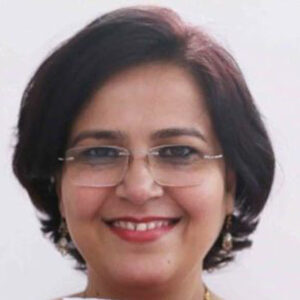
Dr. Rakhshanda Jalil is an Indian writer, critic and literary historian. She is known for her book on Delhi’s lesser-known monuments called Invisible City: The hidden Monuments of India and a well-received collection of short stories, called Release & Other Stories (Harper Collins, 2011). Her PhD on the Progressive Writers’ Movement as Reflected in Urdu Literature has been published by Oxford University Press as Liking Progress, Loving Change (2014). Jalil runs an organization called Hindustani Awaaz, devoted to the popularization of Hindi-Urdu literature and culture.
Jalil graduated from Miranda house, Delhi University in 1986. She started her career as a lecturer in Khalsa College, after that she worked at Aligarh Muslim University as lecturer (1987), editorial assistant at Tata McGraw-Hill Book Publishing Company (1987–89), sub-editor in the Publications Division of the India International Centre (1989–90), assistant editor in the Publications Division of the India International Centre (1990 – March 1995). She later joined Jamia Millia Islamia and worked there as director of the outreach programme. She co-edited a quarterly journal called Third Frame: Literature, Culture and Society, published and distributed by Cambridge University Press from 2007 to 2009. She was senior associate fellow at the Council of Social Development, New Delhi, and associate editor of Social Change, the journal brought out by CSD (Jan2011-Jan 2012).
Contribution to Urdu literature
She has edited four collections of short stories: Urdu Stories (Srishti, 2002), a selection by Pakistani women writers called Neither Night Nor Day (Harper Collins, 2007, New Urdu Writings: From India &Pakistan (Westland, 2013), and Pigeons of the Domes: Stories of Communalism (Niyogi, 2015); a collection of essays on the little known monuments of Delhi, called Invisible City (Niyogi, 2008, revised the third edition 2011); two co-authored books, Partners in Freedom: Jamia Millia Islamia[11] (Niyogi, 2006) and Journey to a Holy Land: A Pilgrim’s Diary (OUP, 2009). She was co-editor of Third Frame, a journal devoted to literature, culture and society brought out by the Cambridge University Press. She has edited and introduced a volume of essays entitled Qurratulain Hyder and the River of Fire: The Meaning, Scope and Significance of her Legacy (Aakar, 2010; and Oxford University Press, Karachi, 2010). She has published nine works of translations: Premchand’s short stories entitled The Temple and the Mosque (Harper Collins, 1992; revised and enlarged 2011); a collection of satirical writing in Hindi by Asghar Wajahat entitled Lies: Half Told (Srishti, 2002); 32 satirical cameos by Saadat Hasan Manto entitled Black Borders (Rupa & Co., 2003); Through the Closed Doorway, nazms by Urdu poet Shahryar (Rupa & Co. 2004); short stories by Intizar Husain entitled Circle and Other Stories (Rupa &Co. 2004; Sang-e-Meel, Lahore, 2012); a collection of Premchand’s short stories for children called AWinter’s Tale and Other Stories (Puffin, 2007); Naked Voices and other Stories– a collection of stories and sketches by Saadat Hasan Manto translated by her from Urdu (Roli, 2008); Panch light and Other Stories, was published by Harper Collins in 2011, At present, she is engaged in a study of Indian secularism. She is a Member of the Board of Trust of Ghalib Institute and a Member of the other committees of the Institute too.
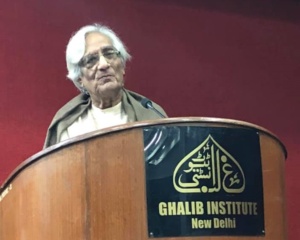
Prof. Harbans Mukhia
Prof. Harbans Mukhia is an Indian historian whose principal area of study is medieval India. He received his Bachelors in Arts (BA) in history in 1958 from Kirori Mal College, Delhi University and then earned his doctorate from the Department of History, Delhi University in 1969. Mukhiaworked at Jawaharlal Nehru University (JNU), New Delhi as a Professor of Medieval History at the Centre for Historical Studies. He was a rector of JNU from 1999 to 2002 and retired in February 2004. Currently, he is the Member of the Board of Trust of the Ghalib Institute and other committees Member also of the Institute.
Honours and awards: Fellowship of the Indian Institute of Advanced Study, Simla (1971)
Homi Bhabha Fellowship (1979–1981)
Director etude Associate, EHESS, Paris, 1980-2003 (a month every year) 1980-2003.
UGC National Lecturer (1985–1986)
UGC National Fellow (1991–1993)
Visiting Professor, the British Academy, London, February–March 1993.
Senior Visiting Fellow, International Institute for Asian Studies, Leiden (1997)
Fellow, IDPAD, University of Amsterdam, October 2004.
National Fellow, Indian Council of Historical Research, 2014-16.
Books As Author
The Mughals of India: Peoples of Asia
Perspectives on Medieval History
Historians and Historiography during the Reign of Akbar
Issues in Indian History, Politics and Society
Exploring India’s Medieval Centuries: Essays in History, Society, Culture and Technology
As Editor
Feudalism and Non-European Societies (Special issue of the Journal of Peasant Studies
Religion, Religiosity, and Communalism; Praful Bidwai, Harbans Mukhia, and Achin Vanaik Bidwai
French Studies in History: The Inheritance Harbans Mukhia, Maurice Aymard
The Feudalism Debate
French Studies in History: The Departures
Understanding India: Indology and Beyond, Harbans Mukhia, Jaroslav Vacek, Prague
The History of Technology in India, vol II, Medieval India, New Delhi, 2012.
Festschriften
Rethinking a Millennium: Essays for Harbans Mukhia: perspectives on Indian history from the 8th to the 18th century
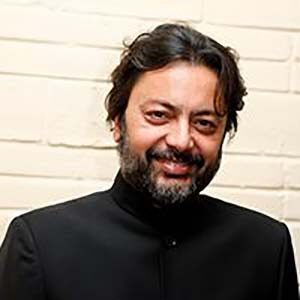
Mr Sanjiv Sarraf
Mr Sanjiv Sarraf is the founder, Chairman and principal shareholder of Polyplex Corporation Limited, which is among the world’s largest producers of PET films. Mr Sanjiv is an alumnus of The Scindia School and a graduate from IIT, Kharagpur (1980). After completing his graduation, he joined his family business in Orissa. In 1984, he ventured out on his own to establish Polyplex. Sanjiv has built an outstanding organization with exemplary values and ethos which are widely respected and admired in the industry, as well as within the financial markets- being publicly listed both in India and in Thailand.
An entrepreneur at heart, Sanjiv has incubated other businesses such as Manupatra –India’s premier legal information provider. Concern for the environment has led him to invest in renewable energy with the launch of a number of Hydro-Electric Power projects in Punjab, Uttarakhand and Sikkim. He is an active member on the boards of various companies across different industries.
A humanist, Sanjiv takes a personal interest in the company’s community initiatives, including the 1200 student non-profit school. Sanjiv is a voracious reader; passionate about Urdu Poetry and has recently learnt the language. He is a lover of art and music. Currently, he is a Member of the Board of Trust of the Ghalib Institute.
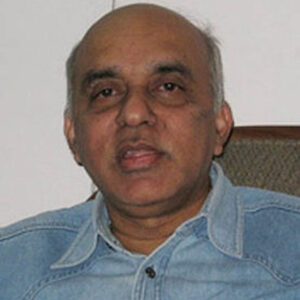
MR. NAVED MASOOD, IAS
Mr Naved Masood, IAS (Rtd.) has been recommended to contribute towards teaching and research as an Adjunct Faculty in the Department of Law of the Aligarh Muslim University.
Mr Naved Masood has rendered highly distinguished services in the highest offices of the government of India. He was Secretary, Union Ministry, Company and Corporate Affairs, and also served in the Union ministries of Agriculture, Human Resource Development, and Health and Family Affairs, besides the Defence Ministry and a few other departments.
He is one of the highly distinguished alumni of AMU from where he received his entire education, up to B. Sc. (Zoology), and LL.B. While still pursuing LL.B., he secured All India Rank ninth in the “IAS, etc., examinations” (and 11th rank in IFS), 1977, in his maiden attempt, securing highest marks in the three Law Papers and in the interviews while still a student.
He is extensively well-read in Law, History, and literature of Urdu, English and Hindi languages. Besides, he is also fluent in German and Arabic.
While serving in the Union Ministry of Human Resource Development (MHRD), he played particularly significant roles in the establishment of the Maulana Azad National Urdu University, Hyderabad.
He writes very beautiful prose and is a regular subscriber/reader of globally renowned academic journals of Law and Social Sciences, including the Modern Asian Studies (MAS, Cambridge) and the Economic & Political Weekly (EPW). His other specific interests lie in the history of education and educational administration in India. On all these wide-ranging issues, he has got the remarkably deep insight and has also identified research gaps in the subjects of his interests.
In several premier universities, across the globe, he has delivered talks on various aspects of Law, Education, and History.
His voluntary services in mentoring the Civil Services aspirants are taken by the Hamdard Study Circle (New Delhi). The AMU students and the academics will benefit from his studies, insight and experiences. Currently, he is a Member of the Board of Trust of the Ghalib Institute.
Executive Committee Of Ghalib Institute
جسٹس مسٹر A.M احمدی Justice Mr. A.M. Ahmadi
Justice Mr. Aftab Alam
مسٹر ایس وائی قریشی Mr. S. Y. Quraishi
پروفیسر صدیق الرحمن قدوائی Prof. Sadiq-ur-Rahman Kidwai
ڈاکٹر پرویز علی احمد Dr. Pervez Ali Ahmed
مسٹر اعماد الدین احمد خان Mr. Aimaduddin Ahmed Khan
پروفیسر ہربنس مکھیا Prof. Harbans Mukhia
بیگم صبا دریز احمد Begum Saba Durrez Ahmed
ڈاکٹر رخشندہ جلیل Dr. Rakhshanda Jalil
Sub-Committees Of Ghalib Institute
Award Sub-Committee
جسٹس مسٹر آفتاب عالم (چیئرمین) (Justice Mr. Aftab Alam (Chairman
پروفیسر چندر شیکھرProf. Chander Shekhar
ڈاکٹر اطہر فاروقیDr. Athar Farouqui
پروفیسر ایس آر قدوائی Prof. S.R. Kidwai
Finance Sub-Committee
جسٹس مسٹر A.M احمدی (چیئرمین) (Justice Mr. A.M. Ahmadi (Chairman
ڈاکٹر پرویز علی احمد Dr. Parvez Ali Ahmed
مسٹر اعمادالدین احمد خان Mr. Aimaduddin Ahmed Khan
پروفیسر ایس آر قدوائی Prof. S. R. Kidwai
بیگم صبا دریز احمد Begum Saba Durrez Ahmed
Building Sub-Committee
ڈاکٹر پرویز علی احمد (چیئرمین) (Dr. Parvez Ali Ahmed (Chairman
مسٹر اعمادالدین احمد خان Mr. Aimaduddin Ahmed Khan
بیگم صبا دریز احمد Begum Saba Durrez Ahmed
مسٹر عبید عرفی Mr. Obaid Urfi
پروفیسر ایس آر قدوائی Prof. S. R. Kidwai
Ghalib Nama Editorial & Advisory Board
1. پروفیسر ایس آر قدوائی (چیئرمین) (Prof. S. R. Kidwai (Chairman)
2.پروفیسر عتیق الله Prof. Atiqullah
3.ڈاکٹر سرورالھدی Dr. Sarwarul Huda
4.ڈاکٹر سید رضا حیدر Dr Syed Raza Haider
Library Sub-Committee
ڈاکٹر ایس وائی قریشی (چیئرمین) ( Dr. S. Y. Quraishi (Chairman)
پروفیسر ایس آر قدوائی Prof. S.R. Kidwai
پروفیسر ریحانہ خاتون Prof. Rehana Khatoon
Museum Sub-Committee
بیگم صبا دریز احمد Begum Saba Durrez Ahmed
مسٹر جمال عبدالواجد Mr. Jamal Abdul Wajid
ڈاکٹر افتخار عالم خان Dr. Iftekhar Alam Khan
پروفیسر ایس آر قدوائی Prof. S.R. Kidwai
ڈاکٹر رخشندہ جلیل Dr. Rakhshanda Jalil
Publication Sub-Committee
1. پروفیسر ایس آر قدوائی (چیئرمین) (Prof. S. R. Kidwai (Chairman
2.مسٹر A.M پٹھان Prof. A. M. Pathan
3.مسٹر شاہد علی خان Mr. Shahid Ali Khan
4.ڈاکٹر اطہر فاروقی Dr. Athar Farooqui
5.پروفیسر خالد محمود Prof. Khalid Mehmood
6.ڈاکٹر رخشندہ جلیل Dr. Rakhshanda Jalil
Seminar & Literary Functions Sub-Committee
1.پروفیسر عتیق الله Prof. Atiqullah
2.پروفیسر ریحانہ خاتون Prof. Rehana Khatoon
3.پروفیسر ایس آر قدوائی (سیکریٹری) (Prof. S. R. Kidwai (Secretary)
4.پروفیسر ہربنس مکھا Prof. Harbans Mukhia (Chairman)
5.ڈاکٹر رخشندہ جلیل Dr. Rakhshanda Jalil
6.جناب فیصل فاروقی Mr. Faisal Farooqui
HumSub Drama Group
1.ڈاکٹر رخشندہ جلیل (چیئرمین) (Dr. Rakhshanda Jalil (Chairman
2.پروفیسر ایس آر قدوائی Prof. S. R. Kidwai
3.مسٹر ایم کے رینا Mr. M. K. Raina
4.مسٹر انیس اعظمی Mr. Anis Azmi
5.ڈاکٹر محمد کاظم Dr. Mohd. Kazim
6.مسٹر عزیز قریشی Mr. Aziz Quraishi
7.جناب فیصل فاروقی Mr. Faisal Farooqui

Mrs. Yasmeen Fatima
Museum Manager
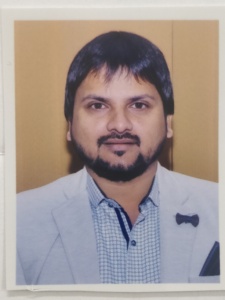
Mr. Abdul Taufique
(Office Assistant/Accounts Assistant)
Mr Mushtaq Ahmad
Fakhruddin Ali Ahmed Research Library
Ghalib Institute, Aiwan-e-Ghalib Marg
Mata Sundri Lane
New Delhi – 110 002
Phone No. (O) 011-23232583
E-mail ID: faarlibrary@gmail.com
librarian@ghalib-institute.com
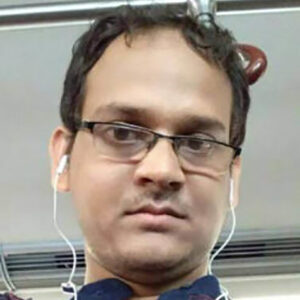
Mr. Parvez Alam
( Assistant)
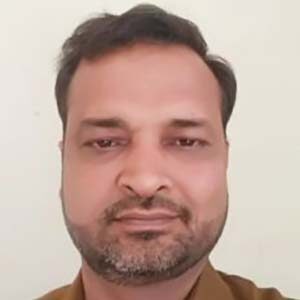
Mohammad Umar
Web Designer/Computer Operator
Sh. Ashwani Kumar
Sh. Salman Haider
Sh. Vijay Kumar
Sh. Maseehuddin
Sh. Afroz Ali
Sh. Siraj Ahmad Khan
Sh. Charan Das
Sh. Bal Kishan
Sh. Sushil Kumar
Sh.Anil Kumar
